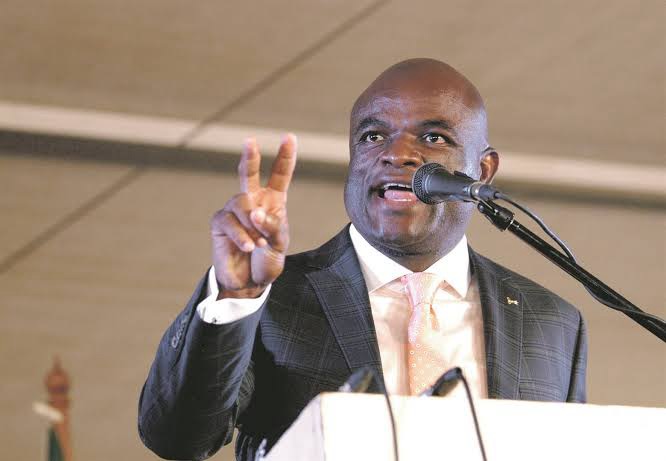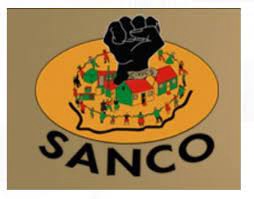
By OBAKENG MAJE
Some residents in Pudimoe said they hope that the newly-appointed Station Commander in Pudimoe Police Station will bring drastic changes. The residents said Pudimoe has been turned into a “crime haven” by criminals, who continue with a “reign of terror”.
One of the residents who refused to be named for fear of reprisal said: “We have a high rate of crime in our area and the police turn a blind eye. Just recently, young men lost their lives after being stabbed to death. We urge the police to combat crime and ensure there is high visibility.
“We understand that some police officers are conniving with criminals, especially drug lords. Our community is living in fear due to these criminals who continue to terrorise us. We hope the newly-appointed station commander will crack the whip against incompetent police officers,” he said.
The North West Police Commissioner, Lieutenant General Sello Kwena accompanied by the Deputy Provincial Commissioners and District Commissioners, conferred ranks to 13 newly appointed station commanders. The conferment took place on 10 May 2024, at the South African Police Service (SAPS) Provincial Office in Potchefstroom.
Lieutenant Col TR Magile was appointed as the Station Commander of Pudimoe Police Station. According to Kwena, Magile has 20 years of service and a Diploma in Policing.
“We have also appointed Lt Col DA Serebolo as the Station Commander of Bloemhof Police Station. Serebolo has 20 years of service and a Diploma in Management. Lt Col MS Modisakeng was appointed as the Station Commander of Lehurutshe Police Station with 29 years of service. He has a Bachelor Degree in Public Administration. Lt Col CSO Letsatsi was appointed as the Station Commander of Swartruggens Police Station and 33 years of service, with a Diploma in Policing.
“Lt Col TV Semeno was appointed as the Station Commander of Ventersdorp and served for the past 32 years. He has a diploma in Policing. Capt MR Molelekoa was appointed as the Station Commander of Boons. Molelekoa has 19 years of service and a Bachelor Degree in Policing,” he said.
Kwena further said he also appointed Capt J Badenhorst as the Station Commander of Boshoek. He added that Badenhorst has 33 years of service and a Diploma in Policing.
“Capt MP Mahube was appointed as the Station Commander of Mareetsane. She has been serving for the past 22 years and has a Diploma in Policing. Capt OM Kegakilwe was appointed as the Station Commander of Morokweng. He has 19 years’ service and a Diploma in Policing,” said Kwena.
He said Capt KM Meleke was appointed as the Station Commander of Ottosdal and has been serving for the past 19 years. Kwena said Meleke has Bachelor Degree in Police Science.
“Capt PB Mogwera was appointed as the Station Commander of Reivilo. He has 19 years’ service and a Diploma in Policing. Capt Plaaitjie was appointed as the Station Commander of Vorstershoop. He has 19 years’ service and a Bachelor Degree in Commerce.
“Capt TC Ngobeni was appointed as the Station Commander of Dwarsberg. He has served for the past 19 years. We would like to congratulate all the appointees. We would also like to remind them that being a station commander is a mammoth task and they are responsible for their jurisdictions,” he said.
Kwena said the station commanders must always be available on their cell phones.
“Station Commanders, you are the extension of the Provincial Commissioner. You are the extension of the District Commissioner. You must be there. In addition, we urge you to take care of both human and physical resources.
“Kindly discourage the tendency of dumping of vehicles involved in accidents at garages without paperwork. Critically, for being the station commander, is giving the people service that they request from you. Ensure that your Community Service Centre is running like a clock,” said Kwena.




